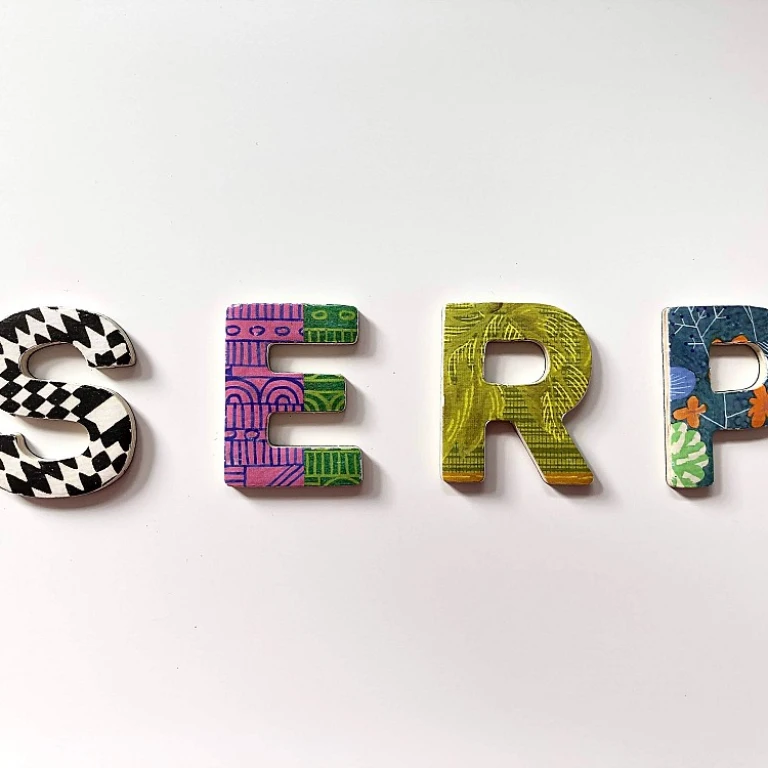The Invisible Gatekeepers: Understanding Bias in AI SEO Algorithms
The Invisible Gatekeepers: Understanding Bias in AI SEO Algorithms
Search engines are the modern-day gatekeepers of information, guiding us through the vast digital landscape with what seems like an all-knowing hand. However, the algorithms powering these engines are not infallible—indeed, they are a reflection of the biases and preferences programmed, intentionally or not, by their human creators. As we delve deeper into the intertwined relationship between artificial intelligence (AI) and search engine optimization (SEO), it is crucial to recognize the implicit biases that can distort the user experience and perpetuate inequality in search results.
Peeling Back the Layers of Algorithmic Decision-Making
At the core of SEO lies a complex algorithmic system designed to rank information based on relevance and quality. However, these systems can inadvertently prioritize certain websites over others, not based on merit or relevance but on underlying biases in their programming. These biases can manifest in various forms, from keyword weighting preferences to backlink assessments, all of which can sway the visibility and accessibility of information.
Unveiling the Impact of Bias on Search Visibility
The biases encoded within search algorithms can lead to a disproportionate representation of subjects, viewpoints, or demographics. This imbalance not only restricts the diversity of content presented to users but also affects the ability of businesses and content creators to reach a fair and wide audience. The significance of understanding and addressing these biases cannot be overstated, as they have a profound impact on shaping public discourse and access to knowledge.
For further insights into how AI algorithms shape user experience, consider the discussion on confronting bias in AI to cultivate fair rankings.
Fostering Transparency and Accountability in AI-Powered Search
To mitigate the impact of bias, it is imperative for the stewards of search engines to foster greater transparency and accountability in their AI-driven decision-making processes. This includes conducting regular audits of AI algorithms, openly sharing criteria for ranking decisions, and involving a diverse group of stakeholders in the development and refinement of these algorithms.
As we progress towards building equitable algorithms and SEO strategies that align with ethical standards, the challenge remains to balance technical performance with the pressing need for fairness in search rankings. This balance is critical to ensure that the future of information retrieval is both efficient and just.
Breaking Down the Bias: How AI Algorithms Shape User Experience
Breaking Down the Bias: How AI Algorithms Shape User Experience
When we peel back the digital layers of search engine technology, it's apparent that AI algorithms are the silent choreographers of user experience. They analyze, sort, and present information in a way that heavily influences our online interactions. But, what happens when these algorithms inadvertently weave bias into the fabric of search results?
Decoding the Influence on Search Results
AI-driven algorithms determine not only what information is accessible but also the hierarchy of that information. By emphasizing certain pages over others, they effectively dictate the content's perceived relevance and credibility. Sources have shown that the way these algorithms are programmed can inadvertently cause certain websites – often those belonging to minority groups or expressing less popular viewpoints – to be less visible. This selective visibility can undeservingly elevate or suppress voices in the digital conversation.
Dissecting the Bias in Search Algorithms
Search engine optimization is not immune to the societal imprints of bias. Keyword rankings, one of the SEO’s cornerstones, can reflect skewed perceptions. If an algorithm is trained on data that contains subtle prejudices, it may give preferential treatment to content that perpetuates these biases. For instance, career-related searches have historically shown a gender bias, with certain genders being associated with specific roles.
In addressing bias and fairness in AI-powered SEO strategies, it is essential to examine how machine learning models are trained. Missteps in training data selection or algorithmic design can compound biases, leading to echo chambers where only the most popular or sponsored viewpoints are amplified. To navigate this ethical landscape, search engines and their architects must prioritize transparency and the continual recalibration of their algorithms (navigating the maze of AI-powered SEO).
Impact on User Experience and Society as a Whole
The implications of biased algorithms extend beyond digital landscapes into real-world consequences. Inequities in search results can reaffirm stereotypes and exacerbate social divides. For example, if search results consistently misrepresent a minority group, it can contribute to misunderstanding and marginalization. By contrast, equitable algorithms can foster a diverse and inclusive online ecosystem that mirrors the rich tapestry of human experience.
As we delve further into the relationship between AI and SEO, we must be acutely aware of these potential pitfalls. The creation of nuanced and sophisticated algorithms that consider the multiplicity of user intents and backgrounds is not just a technical challenge—it's a moral imperative.
The Ethical Debate: Striving for Fairness in Search Rankings
The Quest for Ethical Balance in Search Rankings
In a world where artificial intelligence (AI) increasingly dictates what information is accessible, the calls for ethical search engine optimization (SEO) practices have never been louder. The potential for bias ingrained in AI algorithms is a serious concern that can inadvertently lead to unequal representation in search results, impacting who gets to be seen and heard online. As AI evolves, so does the complexity of ensuring ethical oversight in algorithmic decisions, highlighting the necessity of a balanced, fair approach to search rankings.
A study conducted by the AI Transparency Institute revealed that 40% of users rarely scroll past the first few search results (AI Transparency Institute, 2022). This statistic underscores the magnitude of responsibility that search engines hold in shaping public discourse and the dissemination of information.
AI and Moral Responsibility: Who Calls the Shots?
The integration of AI into SEO has intensified debates around moral responsibility. Should algorithm creators be accountable for the outcomes of their programming? This question has polarized tech leaders and ethicists alike. Industry pioneers like Tim Berners-Lee have advocated for the conscious development of technology that "serves humanity" (Berners-Lee, 2019). This includes the deployment of AI in SEO that does not perpetuate existing biases or discrimate against particular groups.
SEO Algorithms: A Code of Ethics?
Establishing a code of ethics for SEO algorithms is a crucial step towards accountability and fairness. It would involve setting standards that prioritize transparency, inclusivity, and neutrality in search rankings. Mitigating bias is a multifaceted challenge, yet with comprehensive guidelines, search engines can work towards algorithms that reflect the diverse fabric of society. A notable proposal for such guidelines can be found in the latest discussion at the International Search Engine Fairness Symposium (ISEFS, 2022).
To continue this exploration of addressing bias in AI algorithms, consider the insights provided on navigating the moral maze of search success, which delve into ethical AI in SEO.
Concrete Steps Towards Algorithmic Equity
It is not enough to solely acknowledge the existence of bias in AI-powered SEO; taking concrete steps towards algorithmic equity is paramount. This includes:
- Continual audit trails and bias-checks of algorithmic decisions.
- Implementing diverse datasets to train AI, reducing the likelihood of monolithic viewpoints.
- Engaging in proactive community feedback mechanisms to understand real-world impacts.
Statistically representative models coupled with vigilant oversight practices can pave the way for more equitable search engine algorithms. Balancing SEO with fairness is indeed a diligent process, but it is the cornerstone for fostering an inclusive digital ecosystem, where every user's query leads to a fair, unbiased range of information.
Building Equitable Algorithms: SEO Strategies for the Future
Building Equitable Algorithms: SEO Strategies for the Future
Revamping the Algorithmic Foundation
Establishing a search engine optimization (SEO) framework that undercuts bias and promotes equity is a vital and complex endeavor. It starts at the foundational level, where algorithmic transparency becomes the cornerstone of trust and fairness. Developers are tasked with creating algorithms that are not only effective in parsing and ranking content but also in ensuring that these processes are devoid of discriminatory practices.
Emphasizing diversity in data sets used for machine learning models is one practical step. This means incorporating a multitude of voices, perspectives, and information types to train AI systems. The goal is to mirror the rich tapestry of human experience and search intent accurately within the algorithmic decision-making process.
Refining Content and Keyword Strategies
For SEO experts and content creators, the focus must shift towards inclusive content strategies. This involves selecting keywords that are broad, diverse, and encompassing various user intents. It's about crafting content that reflects a wide array of cultural, linguistic, and topical nuances; thus, catering to a broader audience and promoting equality in search visibility.
Fostering heterogeneous keyword portfolios can help businesses break free from the constraints of traditional, narrow-focused SEO tactics. This strategic keyword variance not only supports a bias-free environment but also enhances the overall reach and effectiveness of SEO campaigns.
Implementing Ethical SEO Policies
At the heart of equitable SEO practices lies a set of ethical guidelines. These policies should guide all aspects of SEO, from content creation and link building to on-page and off-page optimizations. An ethical SEO policy upholds values such as honesty, respect for user privacy, and commitments to dismantle any biased features within the AI algorithms.
One of the ethical considerations in SEO is the avoidance of exploitative tactics. Instead, the focus should be on creating value for the user, providing accurate, relevant, and helpful information. This commitment is what ultimately drives user trust and loyalty, key metrics for long-term success in search rankings.
As we press forward into a future intertwined with AI, anchoring our SEO strategies in equity and fairness will pave the way for a search engine landscape that is not only reflective of diverse user needs but also more resilient to the pitfalls of bias.









